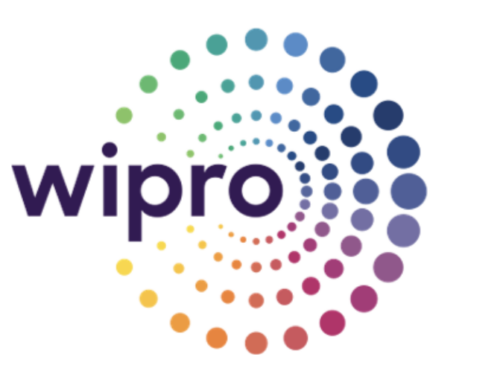“Mental health is not a destination, but a process. It’s about how you drive, not where you’re going.” – Noam Shpancer
The global mental health crisis has reached alarming proportions, affecting close to a billion people across all demographics and geographies. According to the World Health Organization (WHO), approximately 1 in 8 people worldwide live with a mental health disorder. The rising prevalence, compounded by stigma, insufficient resources, and the pandemic-induced surge in mental health issues, demands urgent action.
Technology has emerged as a powerful tool in addressing this crisis, offering innovative solutions that complement traditional mental health interventions. However, while promising, it is not a panacea. Achieving true progress in mental health care requires a balance between technological innovation and human empathy. This whitepaper explores the current challenges, the role of technology, and a vision for an inclusive, effective mental health ecosystem.
The Growing Shadows: Understanding the Mental Health Epidemic
Mental health disorders span a broad spectrum, from anxiety and depression to severe conditions like bipolar disorder and schizophrenia. The WHO estimates that over 280 million people globally suffer from depression, with anxiety affecting nearly 301 million, including 58 million children.
The workplace has become a focal point for mental health discussions. WHO’s 2024 theme, “Mental Health at Work,” highlights how job stress, long hours, and job insecurity have led to widespread burnout, a precursor to severe mental health conditions. A survey by Gallup found that nearly 60% of employees in India report significant work-related stress.
Women, often juggling multiple roles, are disproportionately affected. Studies reveal they are 40% more likely to experience anxiety disorders than men. Meanwhile, youth face unique challenges—suicide is the second leading cause of death among individuals aged 15-29. Social media, academic pressures, and economic uncertainty exacerbate their vulnerability.
The data paints a sobering picture. This is more than statistics. Every number is a cry for help. It is a pity that while awareness is increasing, and people are fighting stigma to seek help – not enough resources are available to lead them to wellness.
The Widening Gaps: Efforts and Inadequacies in Mental Wellness Support
A lot is being done; a lot is unfolding. Governments, business organizations, and NGOs have implemented several mental health initiatives. Programs like Mental Health First Aid aim to destigmatize mental health discussions, while workplace wellness programs provide stress management resources. However, these efforts, while laudable, remain inadequate in scope and reach.
The Lancet Commission reports that for every 100,000 people, there are only 13 mental health workers, creating a stark imbalance between need and availability. Workplace interventions are uneven, limited to a handful of organizations. often inaccessible to low-income workers or marginalized communities. Rising awareness is promising, with 83% of organizations planning to invest in employee mental health by 2025. Yet, the gap between those needing help and those receiving it remains wide, signalling the need for disruptive solutions.
The Promise of Digital Solutions: AI for the Mind
Technology is transforming mental health care by increasing accessibility and providing scalable solutions. More than 20,000 apps and a host of telehealth platforms are at work to provide mental health support to people across the world. And the number is increasing every day. From mindfulness exercises to Cognitive Behavioral Therapy support, virtual support and AI powered bots are expanding the horizon. Virtual Reality (VR) is gaining traction as well, in exposure therapy for conditions like PTSD.
Given the wide gap between need and availability of resources, investments in digital mental health have skyrocketed. As per Allied Market Research, the global market for mental health apps is projected to reach $17.5 billion by 2030. These technologies promise convenience, anonymity, and personalization, addressing barriers that traditional therapy often cannot. However, there is a long winding road to navigate to make the promise a ground reality.
The Limitation of Technologies: Mental Health Beyond Algorithms
There is no disputing the fact that technology has enabled breakthroughs. But these are starkly disproportionate to current need. The chasm is widening every minute. Accessibility remains an issue, with rural and economically disadvantaged populations are struggling to benefit from digital tools. Affordability is another barrier, as many platforms require subscriptions beyond the reach of low-income users.
But beyond the challenges of reach, accessibility and affordability, there lies a fundamental issue that technologists are yet to resolve. Empathy, sensitivity and understanding of human emotions lies at the core of mental health. AI, while powerful, lacks this intuitive empathy. Chatbots can respond with pre-programmed scripts but fail to recognize nuanced emotional states. The robotic and mechanical nature of conversation often leave the individuals more frustrated. As per National Health Institute, a meta-analysis of 18 studies conducted in 2020 found the dropout rate for mental health app users across platforms was as high as 47.8%
For technology to be truly effective, it must evolve to complement human-centric care, not replace it. As Dr. Eduardo Bunge, Professor and Associate Chair of the Palo Alto University rightly points out, “there are many people working in tech that don’t have a background in mental health, and there are many psychologists creating apps that aren’t engaging or user-friendly. We need to combine these two skills.”
The Future of Mental Wellness: Technology and Human Empathy in Harmony
The future of mental health care lies in integrating technology with human expertise. Governments must invest in infrastructure that ensures digital solutions reach underserved populations. Enterprises should prioritize mental health in their corporate social responsibility (CSR) efforts, creating inclusive programs that blend technology with in-person support.
NGOs and academic institutions can lead research on enhancing AI’s emotional intelligence, making it more sensitive and intuitive. The private sector must ensure affordability without compromising innovation.
Promising trends, such as AI advancements in natural language processing and wearable devices for real-time monitoring, indicate a hopeful trajectory. Together, stakeholders can create a mental wellness ecosystem that is inclusive, empathetic, and effective.
The Partnership Pioneering Mental Wellness Technology: MResult and Tranquilla.ai
Empathy is the core missing element in today’s AI solutions for mental wellness. MResult Technologies, with 20 years of experience in building critical technology solutions for pharma industry is building a transformative solution for Tranquilla.ai that brings a genuine human touch.
Tranquilla AI is a first-of-its-kind empathic artificial intelligence dedicated to mental health support. This unique combination of GenAI, emotional intelligence, NLP and specifically trained, secure LLMs deliver personalized, compassionate assistance that transcends the limitations of current AI models.
Tranquilla.ai provides 1:1 agentic support to each individual accessing the platform. The AI agents have human qualities and are humane in their characteristics. Individuals connect to a personal agent with a face, voice, memory and contextual awareness along with understanding of mental health conditions. The support is almost as good as that of a personal counsellor who listens, empathizes, guides and leads you to wellness. You have a friend with a human personality, who speaks 40+ languages and dialects, has a sense of humor and sensibility to understand your unique condition. Unlike the standard AI models devoid of genuine emotional support and empathy our unique GenAI model retains memory of past interactions, understands emotional cues from voice and facial tenor and converses appropriately. The platform is built on the premise of data privacy and delivers measurable impact with data driven insights.
It is platforms like Tranquilla.ai that serve as the beacon of hope and build a positive way forward towards mental wellness for everyone who needs it, where they need it and whenever they need it.







